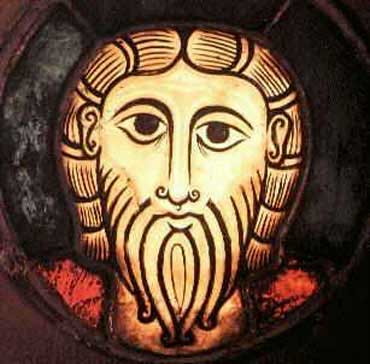First Sunday in Lent — 1 March
Hear our voice, O Lord, according to your faithful love.
Lectionary readings (Click the links to see the readings):
| Genesis 2.15-17;3.1-7 | Psalm 32 | Romans 5.12-21 | Matthew 4.1-11 |

The glory, light, and healing of Christianity earn their way through the fire-path of great suffering. This is the profound tension; here light and dark, suffering and healing are sistered. The fire-path of suffering is the final gathering-place of all the ideas and intentions of Jesus.
Jesus is a fascinating man. The book I would give anything to read has never been written; it would be the autobiography of Jesus. What was his life really like? What did he dream of? What happened on the day when it finally dawned on him that he was from the heart of the Divine? What did he do for the rest of that afternoon? Jesus had a beautiful mind and a wonderful imagination. He was deeply creative; he was a carpenter and a poet. His practice of compassion was subversive. He never judged anyone. I always imagine that Jesus had beautiful eyes. All upon whom he gazed must have felt the infinite gentleness of the Divine suffusing their hearts. T. S. Eliot speaks of some "infinitely gentle … infinitely suffering thing." Something about Jesus' presence offered people a new life. Religion has often forgotten this and fashioned an image of God which only brings fear and guilt on us. Given the defensive and self-perpetuating tendency of all institutions, it is doubtful that any system could ever embody Jesus' infinite gentleness and subversive perception.
There is hardly any other figure in the Western tradition who has been so thoroughly domesticated as Jesus. He was a free spirit who had a lovely wildness in him. Every time religious institutions of the time tried to box him in, he danced away from their threats and trick questions effortlessly. It is enthralling that there are twenty-six or twenty-seven years his life about which we know nothing. Only in the last years of his life did he begin to present himself as God. It would be fascinating to have the possibility of excavating the landscapes of his solitude to see what was dawning on him. How such tender and wild light was brightening in the clay of his heart. There must have been great disturbance and excitement in his mind in those days of such inner quickening. His decision to take it on, to let his life and individuality be driven by this, must have had the inevitability of destiny. Could he glimpse the lonely consequences this choice would have? He would take upon his young body, gentle face, and unique mind the pain, loneliness, and suffering of the world. He would become a thing with no beauty—a thing that would bring sadness to every eye that looked upon it. He would become the suffering servant of life's most merciless negativity—and thus achieve a beauty beyond conventional understanding to which poets, artists, and mystics have responded for two millennia.
He would come into this destiny not as a victim or accidental martyr. No. Through choice he gathered into the circle of his heart the pain of the world. This is horribly evident in his inner torture and fear in Gethsemane. Something awful happened in that garden. He sweated blood there. He was overcome with doubt. Everything was taken from him. Here the anguished scream of human desolation reached out for divine consolation. And from the severe silence of the heavens, no sheltering echo returned. This is what the Cross is: that bleak, empty place where no certainty can ever settle. His friends betrayed and abandoned him. Christ explores the endless heart of loss with such gentle and vulnerable courage.
— John O'Donohue. Eternal echoes. Perennial, 1999, pp. 165-6.
William Walton. Litany.
ProMusica of Washington Adventist University, dir James Bingham.
May God our Redeemer show us compassion and love. Amen.